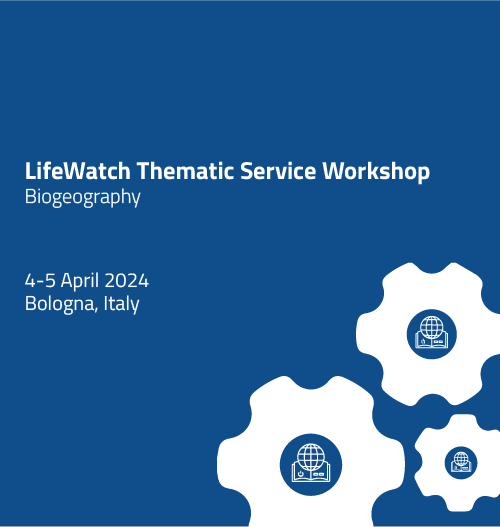Species assemblages across space and time
Home | Events | LifeWatch Italy | Species assemblages across space and time

Bologna, Italy, 4-5 April 2024
Last update: 25/03/2024
Organisms and biological communities vary along geographic space both in relation to the gradients of latitude, elevation, isolation and habitat area. In addition, the species composition of the local or regional assemblages varies across space and time depending on evolutionary and ecological pressures. This makes biodiversity not evenly distributed in space, with some regions hosting significantly more species than others. Climatic and land use changes affect species’ biogeographical distribution and abundance. Often, these changes determine the reduction of the number of individuals and range size of species, but opposite patterns are typically observed for alien invasive species. The changes in abundance and distribution of species determine a continuous transformation of species assemblages. This is very interesting for establishing basic studies of general conservation strategies and species conservation planning actions.
In this workshop, we intend to explore the role of LifeWatch ERIC in developing a suite of tools and services on data curation, data analysis and modelling to better understand biogeographical gradients in space and time and to model future changes in response to climate change or conservation strategies.
To register, please fill in this form.
Agenda (updating)
4th April (14.30-19.00)
- Opening by prof. Alessandro Chiarucci (University of Bologna);
- Introduction to LifeWatch Thematic Service Workshop by prof. Alberto Basset (Università del Salento);
- Presentations: Present and future challenges in Biogeography:
- Prof. Ole Reidar Vetaas (University of Bergen): Conservation biogeography; migration, isolation, and barriers in changing climate;
- Prof. Borja Jimenez-Alfaro (University of Oviedo): Diversity and distribution of alpine ecosystems;
- Linking Earth Observation with Emerging Risks of Wildfires in European Temperate Forests by Prof. Carl Beierkuhnlein (University of Bayreuth)
- Open discussion
5th April (9.00-12.00)
- Discussion on research-related development policies and strategies;
- Establishment and development of working groups on biodiversity;
- The role of the scientific community in LifeWatch ERIC;